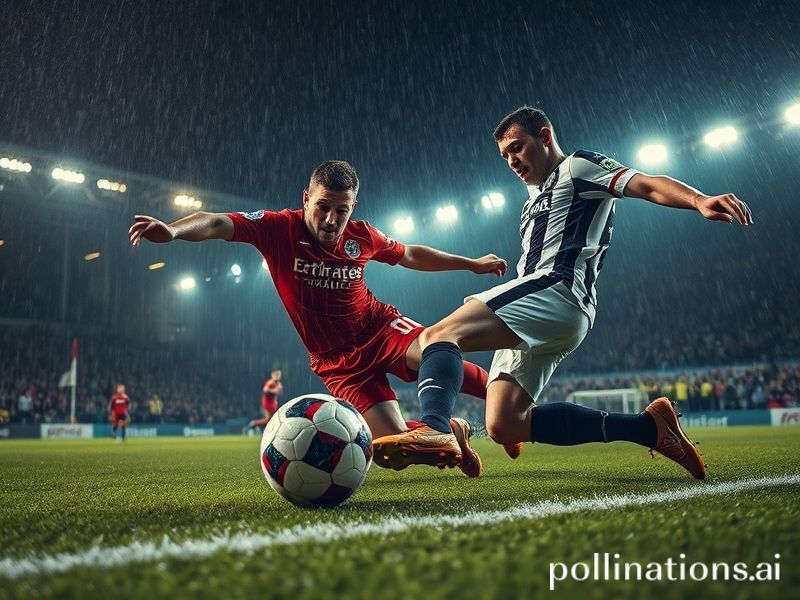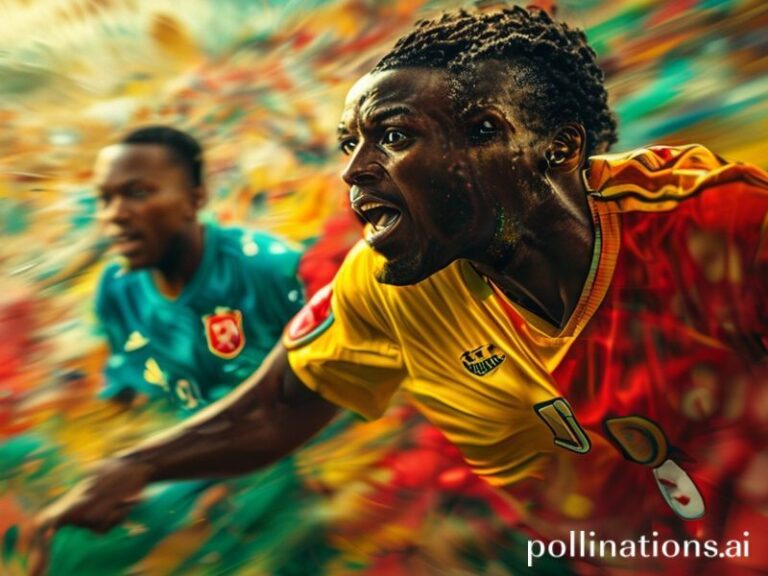Petrodollars & Panic: How Nottingham vs Newcastle Became the World’s Most Expensive Nervous Breakdown
Nottingham Forest 1–3 Newcastle United
City Ground, 13 May 2024 – 20:45 BST
(Written from a hotel whose minibar charges €9 for a packet of crisps—globalisation at its finest)
So here we are again, watching two proud English clubs decide whether the Premier League’s final Champions-League ticket gets stamped in Nottingham or couriered to Tyneside. From Ulan Bator to Montevideo, the planet’s insomniacs queued up their dodgy streams, ready to witness capitalism’s most photogenic panic attack: a game worth, conservatively, the GDP of Fiji.
Forest started the evening like a hedge fund that’s just discovered short-selling. Neco Williams tried an ambitious rabona clearance in his own box—because nothing says “calm” like interpretive dance under existential pressure—and within three minutes Callum Wilson had toe-poked Newcastle ahead. Twitter’s Asian time zones responded with the usual mix of emojis and existential dread: a Malaysian fan posted a GIF of a sinking ship labelled “my portfolio”.
The geopolitical subplot, for those who enjoy their football with a side of trade policy, is that both clubs are owned by petro-capital. Nottingham’s Evangelos Marinakis (also boss of Olympiacos, and, some say, several Greek tabloids) versus Newcastle’s Saudi Public Investment Fund—a body whose idea of financial fair play is reminding opponents it owns more oil than Norway has fjords. Somewhere in Riyadh, a ministerial aide refreshed Bloomberg and muttered, “We paid how much for Joelinton?”
Forest equalised through Morgan Gibbs-White, whose name sounds like a craft gin marketed exclusively to people who use the word “holistic”. Hope lasted exactly nine minutes. Bruno Guimarães—imagine if Neymar had a pragmatic cousin who studied accountancy—threaded a pass that Anthony Gordon finished with the enthusiasm of a man claiming an expense receipt. VAR checked for offside the way border guards check passports at 3 a.m.: slowly, joylessly, with the outcome never truly in doubt.
Half-time brought the obligatory analytics montage. In Singapore, a hedge-fund bot scraped the xG numbers faster than human traders could blink; in Lagos, a viewing-party host changed the channel to Big Brother Naija, calculating that actual drama beats expected drama. Back in Nottingham, rain began to fall like a consultant’s billable hours—steady, inexorable, and slightly acidic.
The second half opened with Forest chasing shadows and Newcastle playing keep-ball, a possession stat padded so thick you could rest a mortgage on it. The third goal arrived courtesy of a Forest corner routine that resembled a Zoom call where no one remembered to unmute. Gordon sprinted the length of the pitch, scored, then celebrated by pointing to the away end as if to say, “Yes, I too have read the Deloitte Money League report.”
Cue existential wobble. Forest fans serenaded their team with a rousing chorus of “We’re f***ing staying up,” optimism pitched somewhere between gospel and delusion. Meanwhile, Eddie Howe scribbled notes like a man calculating the exact calorie count of vindication. Newcastle’s bench wore the serene look of a venture-capital firm that just secured Series C funding; Forest’s resembled a start-up that realises the free snacks were the entire business model.
The final whistle triggered wildly different global reactions. In downtown Jeddah, trending hashtags collided: #NUFCUCL battled #MSCIinclusion for screen space. In Toronto, a prop bettor cashed out on “Brazilian scores, Scouser assists, nobody mentions Brexit”. And in a Kyiv bomb shelter, a Ukrainian medic paused the stream, smiled at the absurdity of caring, then went back to work—because some relegations are literal.
Broader significance? The Premier League remains the world’s most efficient mechanism for converting anxiety into television rights. Nottingham’s defeat nudges them toward the Championship—English football’s polite term for asset depreciation—while Newcastle secure a seat at Europe’s top table, where the wine is older and the geopolitics older still. Both outcomes will be dissected by analysts wearing earbuds in languages neither club could spell. In the end, the only truly universal language is panic, monetised and streamed in 4K.







